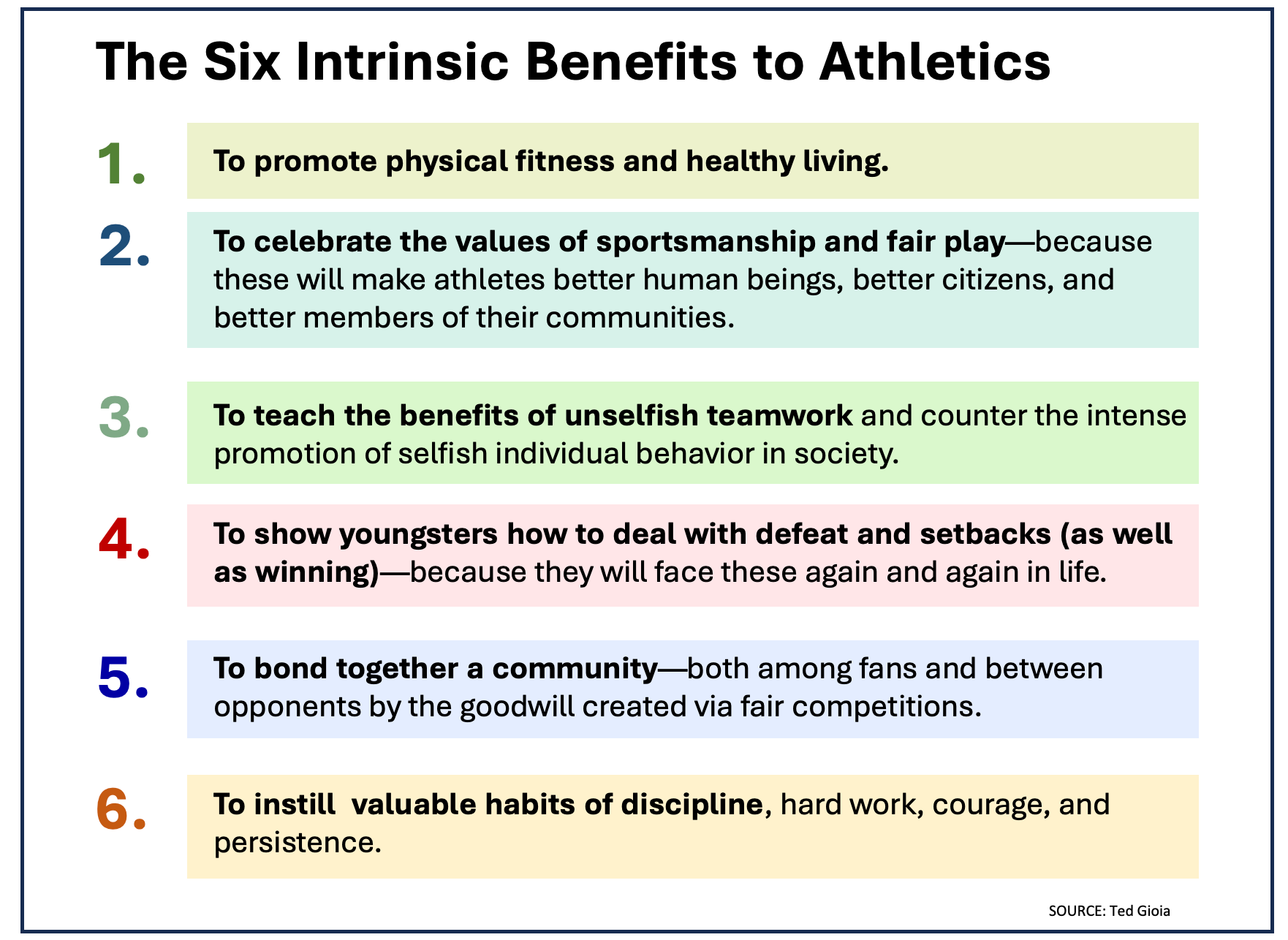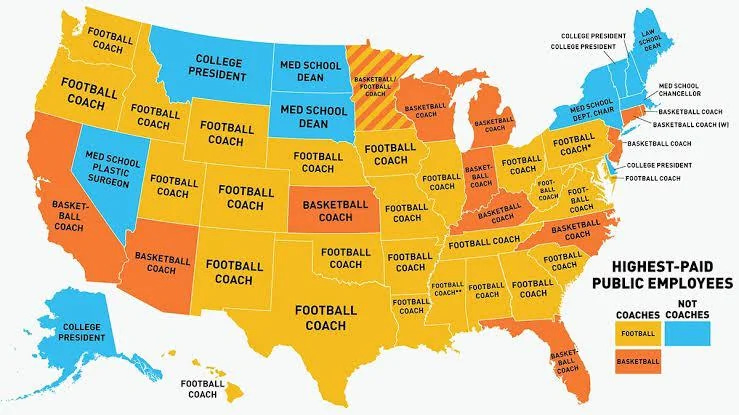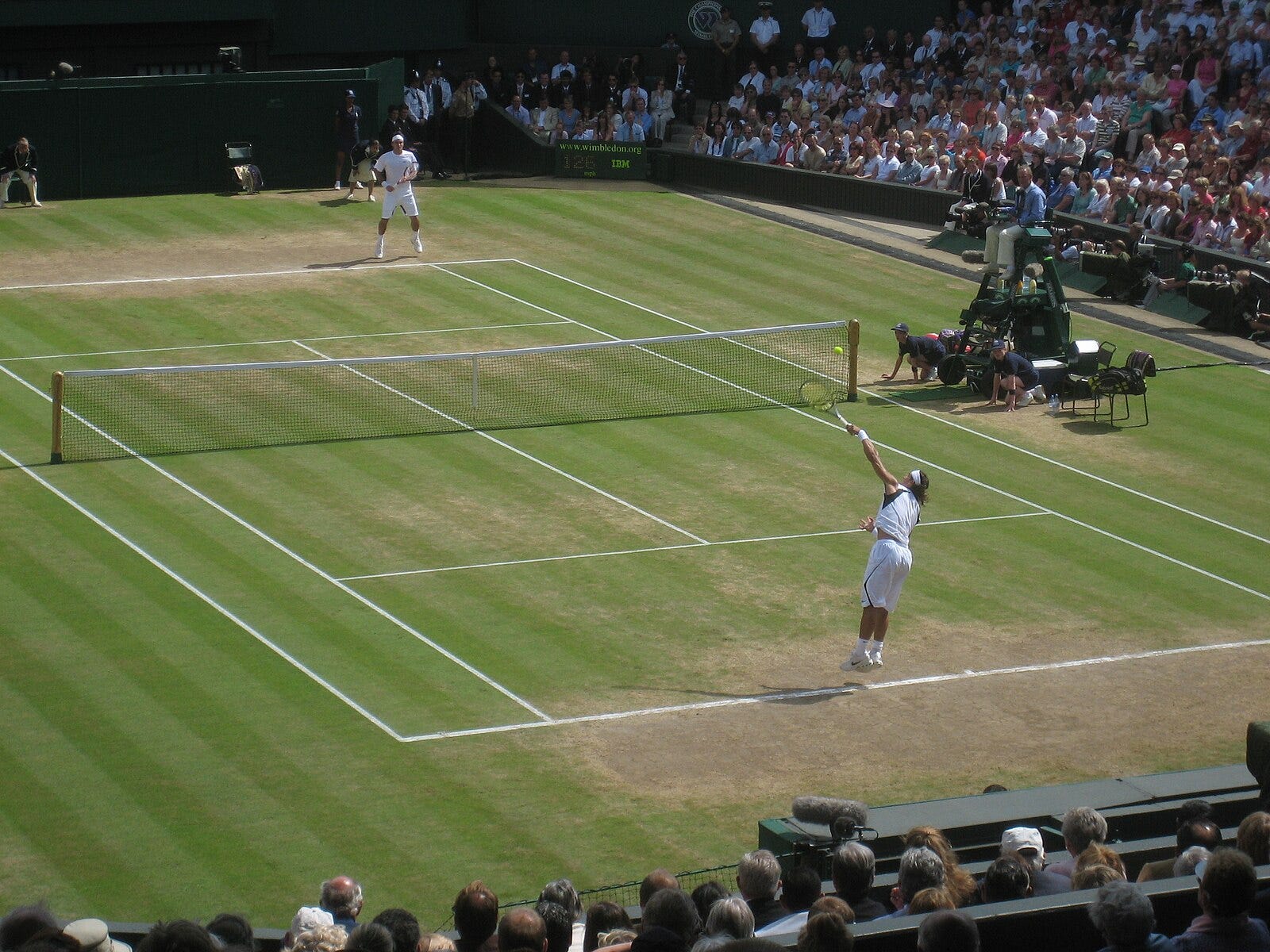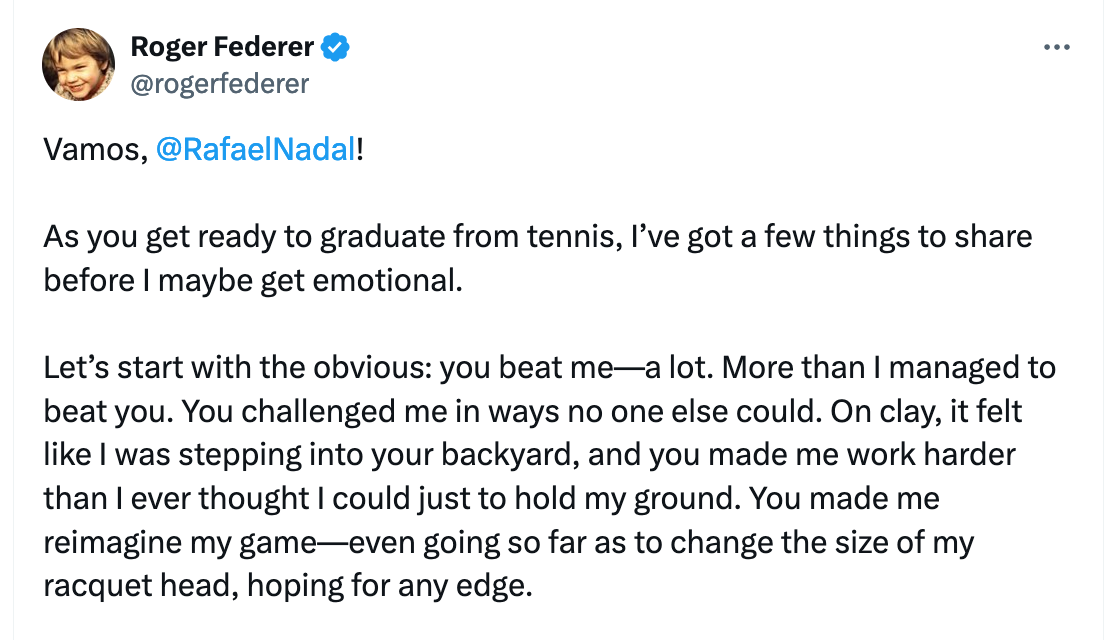I Say Forbidden Things About SportsWhat's happening in athletics is tragic—but don't expect to hear about on ESPNI was shocked when I learned that private equity firms plan to take over college football. How is that even possible? If you want to support my work, consider taking out a premium subscription—for just $6 per month (even less if you sign up for a year).Could a buyout firm acquire a college calculus class? Do university libraries list on the New York Stock Exchange with plans for profit maximization? Can Ticketmaster charge admission to the campus lecture hall? Who knows, maybe those things will soon happen. Judging by the state of college sports, we’re only a step away from total commoditization of higher education. According to Sports Illustrated:
Hey, why not let Smash Capital take over the awarding of diplomas and tenure decisions? If college is about increasing cash flow, why stop with athletics? Meanwhile, let’s check out some other recent sports headlines:
But I’m a stubborn cuss. So I still pretend that colleges are educational institutions, where decisions are made for the benefit of society—not shareholders, financiers, and the local Lamborghini dealership. Some of you are already angry with me. How dare I interfere with a teenager’s opportunity to get wealthy. Let me make this absolutely clear. I have no objection with young athletes—or anybody else—making a buck. Or lots of bucks. But this is not the purpose of college, which gets corrupted when administrators imitate the billionaire owners of NFL franchises. Go ahead and set up a pro league for teens—or pre-teens and toddlers, if you want. But when you start giving profit maximizers and private equity firms control over a campus supposedly devoted to higher education, this story will have an unhappy ending. And if you don’t have values that are deeper than your bank account balance, you will never earn my trust. By the way, I would also say this to people in my own fields of music and writing. If colleges started paying teen pop stars to masquerade as students, I’d call them out for that, too. Let celebrities get as rich as they can—and drive the hottest cars in town. But is it really the job of college administrators to assist in their conspicuous consumption? I’m now going to say something that is just plain common sense. But it’s so different from the media-driven fantasies that dominate public discourse, that many of you will be shocked and outraged. This is the stuff they won’t mention on ESPN. So sit down and prepare yourself. Here goes…. There are only six intrinsic benefits of athletic competiton—and these are the reasons why sports deserve our participation and support. (Note that money is not an intrinsic benefit. And we will talk about winning below—and inquire whether it is a core purpose of sports.) THE SIX INTRINSIC BENEFITS OF SPORTS:
End of story—there are no others. These are the reasons why I want my children and grandchildren to play sports in school (or other settings). But I can’t do that if coaches and schools operate in opposition to these obvious, common sense values. None of this is incompatible with earning a living from athletics. But let’s get our priorities straight. I will argue that—clearly and obviously, no?—giving a a $300,000 sports car to a teenager isn’t as important as the six things I’ve just listed. I’d like to think that we could agree on that. But if that’s true, why do I rarely hear any of these six priorities mentioned in discussions of sports? You can listen to sports talk radio all day long, and never hear the word sportsmanship mentioned once. Even the term physical fitness is rarely spoken—as if this is irrelevant to any discussion of sports. The reality is that athletes now have shorter lifespans because of the way sports have been corrupted and degraded in our times. In other words, athletics now tends to destroy the most significant purpose for its existence. Gift subscriptions to The Honest Broker are now available.Some of you are horrified right now. How do I dare say these things that are forbidden by all sports media outlets? But I will get even more outrageous. Because I’ll now tell you bluntly what is actually taught by sports in America today. It ain’t pretty. Here’s what’s actually taught by the multi-billion dollar sports business to our youngsters:
Am I exaggerating? Not in the least. If anything reality is even worse—I haven’t even touched on steroid use, or the daily news of scandals and criminal behavior from the sports world. Let’s now look at the highest paid public employee in each of the 50 states. Why are coaches paid more than other public employees? The obvious answer is: They are paid more in order to win. Everybody agrees with this. Go read news articles about coach hirings, and you will see confirmation of the well-known sports aphorism:
But here’s something else that should be obvious. This is a zero-sum game. The number of winners in team sports is always exactly equal to the number of losers. You can’t maximize winning in any holistic or inclusive sense. No closed system should even pretend that it can. If these highly paid public servants actually maximized fair play, sportsmanship, teamwork, discipline, persistence, healthy living, and the other real social benefits to athletics, I might be persuaded to pay them enormous sums. But for the government to pay ten million dollars to an individual so that the recipient can win but others lose is a ridiculous misallocation of resources. Nobody dares to say this. Well, except right here—but I will take a lot of heat for speaking obvious words of truth. And then we get to the biggest trend in sports today—the fastest growing segment in the sports economy. Can you guess what it is? Maybe March Madness? Or soccer? Or women’s basketball? Or college football? Nope—it’s none of these. The fastest growing segment in the sports economy is gambling. It’s already a $10 billion business. But experts anticipate it soon growing to $45 billion. How much do you think that contributes to health and fitness? Years ago, NBA star Charles Barkley stirred up controversy when he declared “I am not a role model.”  Of course, he did this as part of a paid endorsement for Nike, which absolutely wanted him to be a role model for people who buy shoes—that’s how deeply deceit is embedded into the sports business model. Even more to the point, anybody who has their act together and is trying to live a kind, decent life already knows that you do not turn to the sports world for edifying life examples. But there are a few. And we need to celebrate them—because they offer us a glimmer of hope. And they show how we could actually fix athletics if we cared enough to do so. In that spirit, let me share some of the words tennis legend Roger Federer shared a few days ago on the occasion of Rafael Nadal’s impending retirement.
Federer and Nadal rank among the great rivals in sports history. I’ve written elsewhere about how much we can learn from rivalry—but only when we respect our nemesis, and find (through intense competition) how much we share in common. There’s no hatred in that kind of rivalry—just a mutual challenge to betterment. That comes across beautifully in these words from Federer. (You can read them in their entirety here.) He starts by talking about the most taboo subject in all of sports—how you can benefit from losing. And then he goes on:
It’s inspiring to read that, no? And that’s the true spirit of sports when played at the highest level. Money isn’t even mentioned here. It would be an insult to mention it. That doesn’t stop athletes from making lots of money. (Nadal’s lifetime earnings are estimated at more than $500 million, and Federer may have brought in twice as much.) But you can never measure sports greatness in dollars and cents. Don’t even try. And if the dollars come at the expense of discipline, courage, dedication, decency, health, and sportsmanship, it’s a losing transaction for everybody. These perhaps sound like unrealistic values given the current degraded state of the sports business. Who dares talk about health, integrity, fairness, and decency in the face of all that? But the very fact that these are eliminated from the bargaining table—and everything in sports now takes place at some kind of bargaining table—tells us how much we need them. Can we make any progress on this front? I don’t know. But I’m certain of one thing: The first step has to be talking honestly about how broken sports is today. Unless we do that, no change is possible. You're currently a free subscriber to The Honest Broker. For the full experience, upgrade your subscription. |
Search thousands of free JavaScript snippets that you can quickly copy and paste into your web pages. Get free JavaScript tutorials, references, code, menus, calendars, popup windows, games, and much more.
I Say Forbidden Things About Sports
Subscribe to:
Post Comments (Atom)
I Share Private Journal Entries
Random jottings on music (and other topics) from my notebook ͏ ͏ ͏ ͏ ͏ ͏ ͏ ͏ ͏ ͏ ͏ ͏ ...
-
code.gs // 1. Enter sheet name where data is to be written below var SHEET_NAME = "Sheet1" ; // 2. Run > setup // // 3....







No comments:
Post a Comment